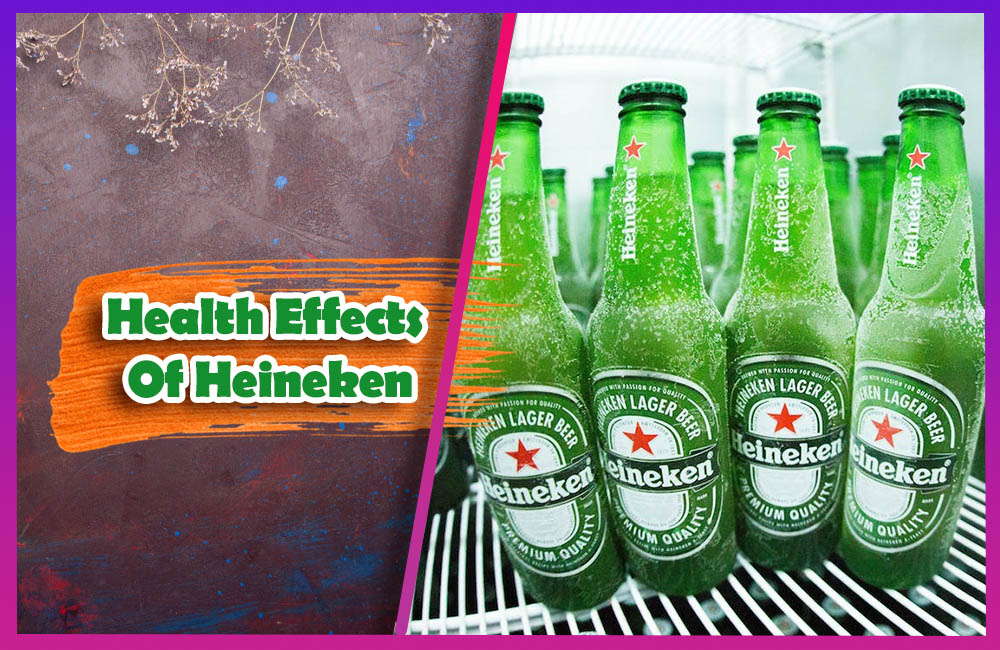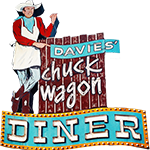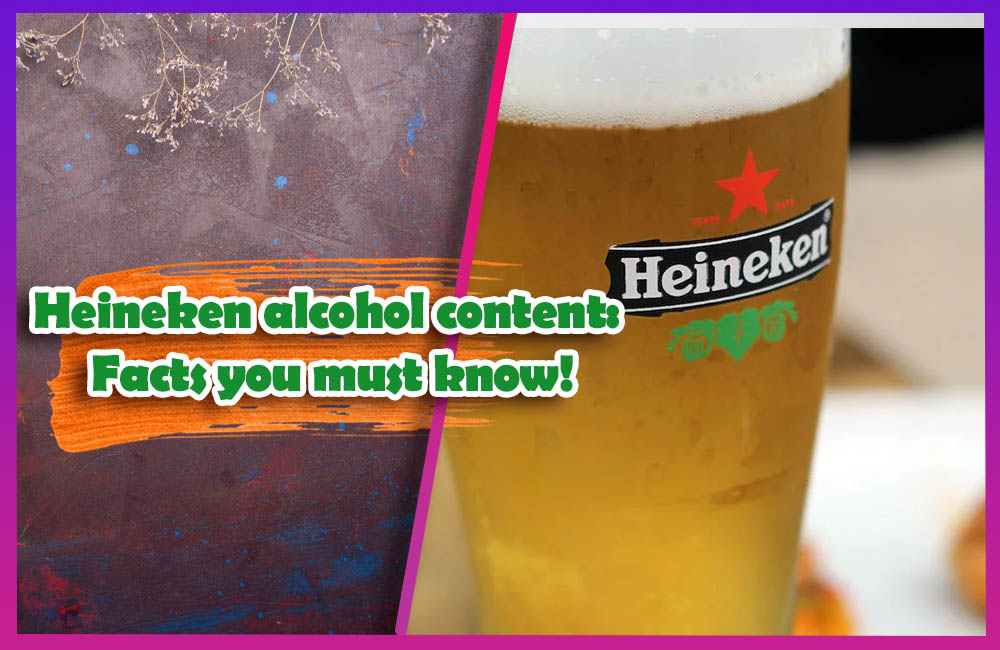Do you know Heineken alcohol content? Have you ever wondered what is in your bottle of Heineken? Well, today we are taking a close look at the alcohol content of this popular beer. From its light refreshment to its strong ABV, Heineken has long been one of the premier choice beverages for many beer lovers.
But with so much different information floating around out there, it can be difficult to get an accurate understanding of just how alcoholic (or non-alcoholic) this drink actually is. We have gathered all the necessary facts and data right here so you can feel confident about knowing exactly what makes up a pint (or bottle) of Heineken!
About Heineken: Famous beer brand
Table of Contents
Heineken is the world’s most famous beer brand. Founded in 1864, Heineken has been brewing beer for over 150 years and is now present in more than 170 countries around the world. The company prides itself on its award-winning taste that keeps customers coming back time and time again.
The Heineken recipe is one of the most closely guarded secrets in brewing, as it has remained unchanged since 1873. It starts with a blend of malted barley, hops, yeast and water that’s been specially sourced to create its signature flavor profile.
This is then followed by a long maturation process utilizing different types of fermentation tanks across 4 breweries in the Netherlands before being bottled or canned for distribution worldwide.
Heineken is the gold standard in lager beers, and can be enjoyed on its own or mixed with other drinks to create a variety of delicious cocktails. It’s also an excellent food pairing partner, and goes well with both rich and light dishes alike.
Heineken stands apart from other beer brands due to its commitment to quality and consistency, something that the company takes great pride in.
Overall, Heineken is an iconic brand that has established itself as one of the most recognizable and beloved names within the beer industry. Its unique flavor profile and consistent quality make it a favorite for beer drinkers all over the world.
With a long history that dates back more than 150 years, Heineken continues to bring joy and satisfaction to beer lovers the world over.
What is Heineken alcohol content
Heineken is an international lager beer, with a standard alcohol content of 5% ABV. This is slightly lower than average for the category, however it means that Heineken can be enjoyed in larger quantities without becoming overly strong or heavy.
The lightness of Heineken is balanced out by its distinctive flavor profile, which combines malty sweetness with a subtle hoppiness and a pleasant bitter aftertaste. This is achieved by using a special blend of barley malts that are sourced from all over the world, as well as specific types of hops from Germany and the Czech Republic.
Heineken also undergoes a long maturation process before it is bottled or canned, allowing time for its flavors to develop and mellow out. This contributes to Heineken’s smooth yet powerful taste, making it an ideal choice for those looking for something light yet flavorful.
5 factors affecting Heineken alcohol content
1. Fermentation method: Heineken uses several different types of fermentation tanks, each one having an impact on the beer’s alcohol content. The most common type of tank is a lager tank which results in slower and cooler fermentations, leading to a lower alcohol percentage than other methods.
2. Aging time: Heineken undergoes a long maturation process before it is canned or bottled, allowing time for its flavors to develop and mellow out. This contributes to Heineken’s smooth yet powerful taste, but also affects the final alcohol content of the beer.
3. Yeast strain: Different yeast strains can have varying impacts on the flavor profile as well as benefit alcoholic strength of the beer. Heineken uses a specific yeast strain which is carefully chosen to produce the desired end result of their signature lager beer.
4. Water source: The water used in brewing Heineken is specially sourced from wells located throughout the Netherlands, providing an essential component to the unique flavor profile of this popular beer. Different waters can impact both taste and alcohol content, so it’s important that high quality sources are used for consistency purposes.
5. Malted barley: Heineken uses a blend of malted barley sourced from across Europe, giving the beer its signature sweet malty notes as well as influencing alcoholic strength. This blend also contributes to producing finer flavors and ensuring a consistent product with every batch brewed.
Table compare Heineken alcohol content with other drinks
| Drink | Taste | Suitable | Alcohol Content | Occasion |
|---|---|---|---|---|
| Heineken | Crisp, slightly bitter | Casual drinking, socializing | 5% ABV | Parties, BBQs, pubs |
| Corona Extra | Light, refreshing | Beach, poolside | 4.6% ABV | Outdoor gatherings, beach parties |
| Guinness | Rich, creamy, slightly bitter | Pubs, bars | 4.2% ABV | St. Patrick’s Day, socializing |
| Budweiser | Mild, slightly sweet | Sports events, casual drinking | 5% ABV | BBQs, tailgates, sports bars |
| Stella Artois | Crisp, slightly hoppy | Formal events, fancy dinners | 5.2% ABV | Weddings, dinner parties |
| Smirnoff Vodka | Neutral, smooth | Cocktails, mixed drinks | 40% ABV | Nightclubs, parties |
| Jack Daniel’s Whiskey | Sweet, smoky | Sipping, on-the-rocks, mixed drinks | 40% ABV | Formal events, parties, bars |
| Bacardi Rum | Light, tropical | Cocktails, mixed drinks | 40% ABV | Beach parties, summer events |
| Jose Cuervo Tequila | Sweet, earthy, spicy | Margaritas, shots | 40% ABV | Cinco de Mayo, parties, nightclubs |
| Chardonnay Wine | Fruity, buttery | Formal events, fancy dinners | 12.5% ABV | Weddings, dinner parties, wine tastings |
| Merlot Wine | Smooth, dry | Casual drinking, socializing | 13.5% ABV | BBQs, casual gatherings, wine tastings |
Health Effects Of Heineken

Positive Health Effects of Heineken:
1. Hydration: Drinking beer in moderation can be hydrating and provide a source of electrolytes, which helps to replenish the body after exercise or during periods of dehydration.
2. Lower risk of heart disease: Studies have shown that moderate beer consumption may help lower the risk for coronary artery disease and stroke.
3. B vitamins: Beer contains B vitamins such as niacin, riboflavin, Pantothenic Acid, folate, B6 and B12 which can promote healthy metabolism, neurological development and nerve function.
4. Antioxidants: Some beers contain antioxidants that can help protect against cell damage from free radicals and reduce the risk of certain diseases.
5. Reduced risk of kidney stones: Studies have shown that beer may help to reduce the risk of developing kidney stones.
6. Cognitive benefits: Moderate consumption of beer can offer cognitive benefits due to its antioxidant content and B vitamins, which can help improve memory and concentration.
Negative Health Effects of Heineken:
1. Increased risk for cancer: Regular consumption of alcoholic beverages increases your chances for developing certain types of cancers, including liver, breast, colon, esophageal, and pancreatic cancers.
2. Increase in blood pressure: Long-term drinking can lead to an increase in blood pressure which puts you at a higher risk for heart attack or stroke.
3. Risk of addiction: Excessive drinking can lead to alcohol addiction and alcoholism, which is a serious condition that requires professional help for recovery.
4. Poor sleep quality: Drinking alcohol before bedtime can disrupt your REM cycle and hinder the restorative sleep process, leaving you feeling fatigued the next day.
5. Weakened immune system: Long-term heavy drinking suppresses your body’s natural ability to fight off infection and can leave you vulnerable to illnesses such as colds or flu.
6. Liver disease: Regular excessive consumption of alcoholic beverages increases your chances of developing liver cirrhosis and other diseases of the liver.
Regulations on the consumption and sale of Heineken
1. Legal drinking age: In many countries, including the Netherlands, it is illegal to purchase or consume alcoholic beverages if you are under the legal drinking age of 18 or 21.
2. Alcohol labeling and marketing: Heineken is subject to laws and regulations regarding the labeling of their products which must accurately list all ingredients used in production as well as any health warnings related to alcohol consumption.
Additionally, Heineken must abide by strict rules on advertising and marketing their products responsibly, especially in regards to targeting those under the legal drinking age.
3. Taxation: Alcohol taxes vary from country to country depending on a variety of factors, such as type of product being sold and volume consumed per capita.
These taxes help regulate the availability and consumption of alcoholic beverages, as well as generate revenue for the government.
4. Limiting hours of sale: Heineken products are subject to laws that limit when and where they can be sold, such as closing times for stores selling alcohol or restrictions on sales in public places.
These regulations help reduce binge drinking and excessive alcohol consumption by regulating when and where it is legally available for purchase.
5. Setting limits on concentration: In many countries, there are laws limiting the strength of beer produced and sold, which helps regulate how much alcohol people consume in a single sitting.
This also helps to keep lower-strength beers more affordable than higher-strength varieties so that those who choose not to drink heavily still have access to quality beer at a reasonable price.
Read more:
What is breakfast blend coffee
How much caffeine in cafe Bustelo
10 amazing things about Heineken
1. Rich history: Heineken has a long and rich history that dates back to 1864 when the first Heineken beer was brewed in Amsterdam, Holland. Since then, the company has grown to become one of the largest brewers in the world and is now available in over 192 countries.
2. Quality ingredients: Heineken uses only high quality ingredients such as hops, malt, yeast, and water to craft its signature beers. The company also honors sustainable farming practices by sourcing their ingredients from local farmers and upholding fair labor standards.
3. Unique brewing process: Heineken employs a unique two-step fermentation process which creates a light and crisp flavor profile that pairs well with food or on its own. This process also creates a longer shelf life which allows Heineken to be enjoyed in more than 192 countries around the world.
4. Varied beer styles: Heineken brews a variety of different beers, including lagers, ales, stouts, and wheat beers. This ensures that there is something for everyone, no matter what type of beer they prefer.
5. Responsible drinking initiatives: Heineken has worked hard to promote responsible drinking habits through their global “Beer Meets Responsibility” campaign since 2013. The company also works with local organizations in each country it operates in to identify ways to help reduce alcohol-related harm and encourage healthier lifestyles among its consumers.
6. Innovative products: Heineken has a history of pushing the boundaries of beer innovation, often creating new and unique products that have become popular with customers. Examples include the introduction of their Radler and Fruit beers in recent years which offer a refreshing alternative to traditional lagers.
7. Charitable giving: Heineken has a long history of supporting communities around the world through its charitable giving initiatives, such as its “Brewing A Better World” philanthropy program.
Through this program, Heineken works with local organizations to provide clean drinking water, reduce energy consumption, support education for girls in developing countries, and more.
8. Relevant advertising campaigns: Heineken has created some of the most memorable advertising campaigns over the years, such as “The Wall of Play” and “Open Your World.” These campaigns have successfully connected customers with the brand by creating memorable and relevant experiences that consumers can relate to.
9. Global reach: Heineken is now available in over 192 countries and territories around the world, making it one of the most widely available beers in the world. This global reach has allowed Heineken to become a household name in many countries across the globe.
10. Dedication to quality: Above all else, Heineken is committed to providing its customers with high-quality beer that is brewed with care and attention at every step of the process, from sourcing ingredients to packaging and shipping finished products.
This commitment to quality is what sets Heineken apart from other brewers and ensures that customers can enjoy a consistently great tasting beer.
3 great recipes with Heineken
1. HEINEKEN GARLIC SHRIMP
Ingredients:
• 2 tablespoons olive oil
• 1/4 cup Heineken beer, divided
• 4 cloves garlic, minced
• 1/2 teaspoon crushed red pepper flakes
• 1 pound medium shrimp, peeled and deveined
• Salt and black pepper to taste
Tools:
• Large skillet or wok
Instructions:
1. Heat the olive oil in a large skillet or wok over medium-high heat. Add garlic and red pepper flakes and cook until fragrant, about 30 seconds.
2. Season the shrimp with salt and black pepper then add them to the skillet. Cook until the shrimp just begin to turn pink, about 1 minute per side.
3. Add 2 tablespoons Heineken beer and simmer until almost all of the liquid has evaporated and the shrimp are cooked through, about 2 minutes more.
4. Remove from heat and stir in remaining Heineken beer. Serve hot with your favorite sides!
2. HEINEKEN-GLAZED CHICKEN WINGS
Ingredients:
• 2 pounds chicken wings, separated into flats and drums
• Salt and black pepper, to taste
• 3/4 cup Heineken beer
• 1/3 cup honey
• 1/4 cup soy sauce
• 2 cloves garlic, minced
Tools:
• Baking sheet
• Mixing bowl
Instructions:
1. Preheat oven to 375°F. Arrange the chicken wings on a baking sheet and season with salt and black pepper. Bake for 25 minutes. Turn chicken wings over and bake for an additional 15-20 minutes or until golden brown and cooked through.
2. While wings are baking, combine Heineken beer, honey, soy sauce, and garlic in a small mixing bowl and whisk together until combined. Set aside.
3. When wings are done baking, brush them liberally with the glaze mixture then return to oven for 5 minutes or until glaze is bubbly.
4. Serve warm with your favorite sides!
3. HEINEKEN CHEESECAKE
Ingredients:
• 2 cups graham cracker crumbs
• 1/4 cup melted butter
• 2 tablespoons light brown sugar
• 12 ounces cream cheese, softened
• 1/2 cup granulated sugar
• 1 teaspoon vanilla extract
• 2 eggs, lightly beaten
• 3 tablespoons Heineken beer
Tools:
• 9 inch springform pan
Instructions:
1. Preheat oven to 350°F and lightly grease a 9-inch springform pan with nonstick spray or butter. Set aside.
2. In a small bowl, combine graham cracker crumbs, melted butter, and light brown sugar until evenly combined. Press the mixture into the bottom of the prepared pan then bake for 8 minutes or until lightly golden. Set aside.
3. In a separate bowl, beat cream cheese on medium speed for about 2 minutes before adding in granulated sugar and vanilla extract. Beat until creamy and well-combined then add eggs one at a time, beating after each addition until combined.
4. Finally, stir in Heineken beer and pour the batter over the cooled crust in the springform pan. Bake for 40-45 minutes or until center is set but slightly jiggly when shaken gently.
5. Allow the cheesecake to cool completely before serving. Refrigerate any leftovers.
FAQs about Heineken alcohol content
1. What is Heineken’s alcohol content?
Heineken’s alcohol content is 5% ABV (alcohol by volume).
2. How many calories are in a bottle of Heineken beer?
A 12 oz bottle of Heineken contains 153 calories.
3. Is Heineken gluten free?
No, Heineken is not gluten free due to its barley malt content.
4. Is there sugar in Heineken?
Yes, there is some sugar present in the ingredients used to make Heineken beer; however, most of it is converted into alcohol during brewing and fermentation processes.
5. Does Heineken contain any artificial flavors, colorings or preservatives?
No, Heineken does not contain any artificial flavors, colorings or preservatives.
6. Does Heineken contain sulfites?
No, Heineken does not contain sulfites.
7. Is Heineken vegan friendly?
Yes, Heineken is considered vegan friendly as it does not use any animal products in its brewing process.
8. Does Heineken have caffeine?
No, there is no caffeine present in Heineken beer.
9. Can I drink Heineken if I’m pregnant?
It is generally recommended to abstain from drinking alcohol while pregnant. Consult with your doctor before consuming any alcoholic beverages while expecting.
10. Does Heineken contain sulfates?
No, Heineken does not contain sulfates.
11. Is there a non-alcoholic version of Heineken?
Yes, there is a non-alcoholic version of Heineken called Heineken 0.0 which contains no alcohol and fewer calories than the original beer.
12. How many carbohydrates are in a bottle of Heineken?
A 12 oz bottle of Heineken contains 11 grams of carbohydrates per serving size (1 bottle).
13. Is there a fat content in Heineken beer?
No, there is no fat content in Heineken beer.
14. Is Heineken sold in cans?
Yes, Heineken is sold in both bottles and cans.
15. Is there a light version of Heineken?
Yes, the light version of Heineken contains fewer calories than the original beer and has an alcohol content of 3.3% ABV (alcohol by volume).
Conclusion about Heineken alcohol content
Heineken is a popular beer with an alcohol content of 5% ABV (alcohol by volume). It contains no fat, carbohydrates, artificial colorings or preservatives and is considered vegan friendly. There is also a light version with 3.3% ABV and fewer calories as well as a non-alcoholic version (Heineken 00) that contains no alcohol at all. Heineken can be found in both bottles and cans. However, it is important to remember to drink responsibly and consult your doctor before consuming any alcoholic beverages while pregnant.

I’m Leon Todd and my passion for cooking is my life goal. I’m the owner and operator of Davieschuckwagon.com, a website that specializes in providing high-quality cooking information and resources. I love to experiment with new flavors and techniques in the kitchen, and I’m always looking for ways to improve my skills.
I worked my way up through the ranks, taking on more challenging roles in the kitchen. I eventually became a head chef.
Cooking is more than just a job to me – it’s a passion that I want to share with the world.

